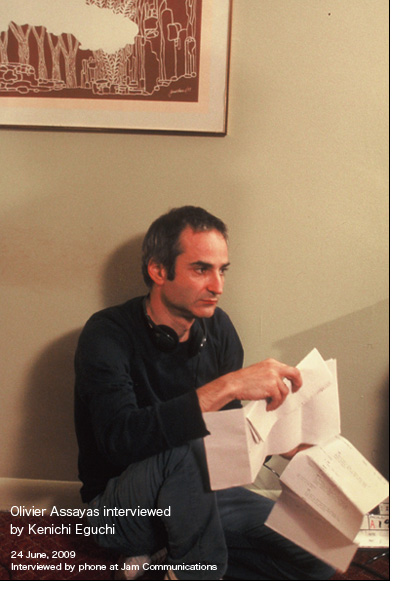|
||||||
| 1 | 2 | 3 | 4 | |
I understand that you are busy shooting a new film.
Actually, I’ve been shooting for a few months already, and now I have a week off, and we start shooting again next week.
Are those the same film?
Yes. But it’s a big project, a 3 part TV drama. 90 minutes times three, and then there’s the feature film.
So it becomes a TV drama and a feature film together?
Yes.
Are you shooting this in Beirut?
Yes, I have already been shooting in Beirut for a few weeks now and will shoot again in July for three weeks.
Are you able to talk about this in detail?
Yes, of course. It is film that follows the life of Carlos the terrorist.
Really! So that project is finally being realized?
Yes. It has.
So this is a film about the Venezuelan revolutionary, right?
Yes, exactly. I have mostly been shooting in Paris and Germany, and then Budapest and Vienna. And then we move to Lebanon and shoot the Middle Eastern scenes. So it will be the scenes happening in Lebanon, Yemen, Libya, Syria, Iraq and so on.
So it’s a very big project.
Well, yes, it is a very large project, and it is extremely complex, since it deals with a certain period in history. It is hard including the historical research since it deals with the times.
You’re obviously dealing with many languages.
Yes, it is in different languages. People speak their own languages. A lot of it is in English. Some of it is in French, German, Spanish and Arabic… Basically, we are using an international cast, and we are using the most believable language for any specific situation, meaning when Carlos doesn’t speak one language, he uses English to communicate with the person he has in front of him. But otherwise, Carlos spoke many languages. I mean, he spoke, of course, fluent Spanish, English, French, some Arabic and some German also. So the actor uses all five languages.
I see. Will this be your biggest budgeted film?
Well, it’s hard to say because ultimately, what I’m shooting is three movies. So in terms of the overall budget, it is on the same level as “Le Destinee Sentimentale”, which is also a period piece I made almost ten years ago now. But then, “Le Destinee Sentimentale” was only one film, even though it was a very long one. And this one is three movies so we had to divide the budget by three. But still, it’s a very expensive film.
So, with the combination with TV and film, will the way you shoot be different?
No. Not really. It is eventually different in the sense that my problem, obviously, is to sustain the interest of the viewer for a much longer timeframe than a regular film. So you have to use diverse styles, you have to adapt, you have to constantly reconsider your approach, because you can’t use the same technique, the same pace or the same style for the whole length of the film. Otherwise, it can become very monotonous. You have to constantly question yourself and reinvent the film, refuel it in many ways. So there were questions that I never had to deal with before. It’s new to me. But I think it would be new to any filmmaker because it’s a very unique project.
| 1 | 2 | 3 | 4 | |


